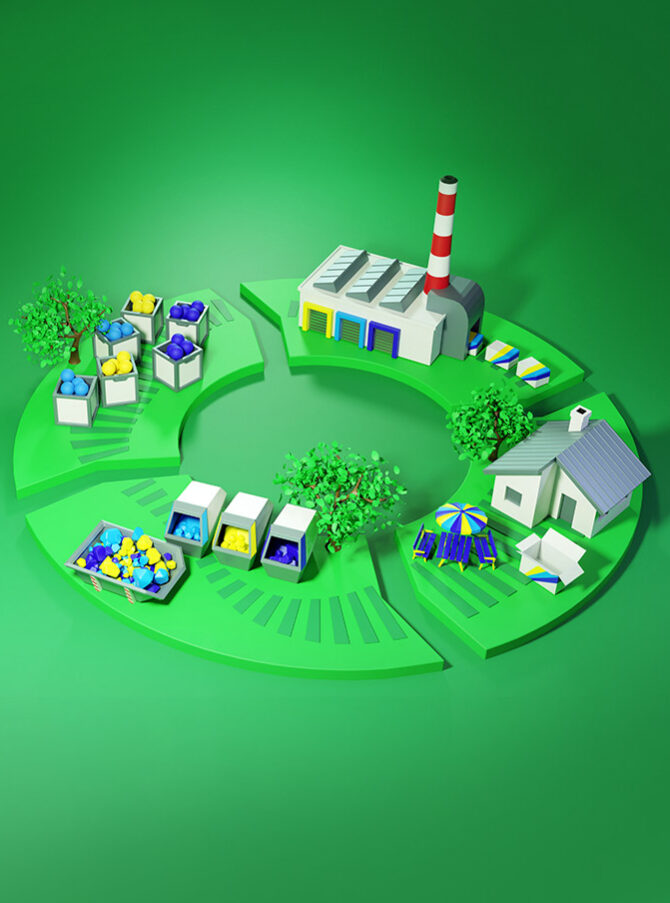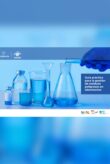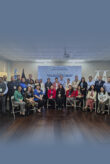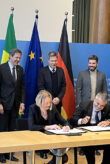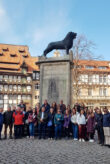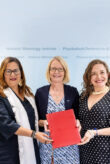A second very popular virtual workshop was held on 28 March – 1 April 2022 on the subject of quality infrastructure and the circular economy. Just as at the first virtual CABUREK workshop in October 2021, there were a lot of participants and a lively exchange of experience this time around. By sharing their experiences, their ideas and their commitment, the roughly 90 participants from over 20 Latin American countries and the Caribbean contributed to this being a successful event that we can look back on with pride.
CABUREK, which stands for Capacity Building Using Regional Experience and Knowledge, is a tool that was developed by the Organization of American States, the Inter-American Metrology System (Spanish: Sistema Interamericano de Metrología, SIM for short) and PTB. When applying CABUREK, national QI institutions develop concepts for their own project ideas and receive support for their implementation from a technical committee. As a rule, a CABUREK process lasts two years and involves regular meetings. During this time, regional cooperation between the participating countries is promoted so that knowledge and progress can be shared among the countries, and they can provide support to each other. Whereas only metrology institutes participated in CABUREK processes in the past, the new PTB regional project to promote the circular economy through quality infrastructure is explicitly targeted at organizations involved in standardization and accreditation for the first time in this current CABUREK round. The paradigm shift away from linear business models to a more sustainable circular economy requires new ways of thinking and has led to in new challenges. QI contributes to achieving this transformation through supportive services on the part of standardization, accreditation, metrology and conformity assessment. Some examples of this are sustainability standards and environmental management systems which provide enterprises with orientation for sustainable management and assessments of their environmental impacts. Metrological services, on the other hand, contribute to optimizing production processes and the use of resources as well as to measuring environmental impacts reliably.
A virtual kick-off workshop already took place in October 2021 as a part of the regional project. At that time, the newly formed national teams, which mostly include representatives of all national QI institutes, received detailed information about the CABUREK method and ideas on how to identify and formulate outlines of national projects. Before it was time for the national teams to meet for the second time, all participants were asked to conduct a needs analysis in the priority areas of plastics, building materials or agricultural food. This meant that the second CABUREK workshop began with all of the national teams presenting the results of their needs assessments to their colleagues from the region. Some countries – Costa Rica, Trinidad and Tobago, El Salvador and Ecuador, for example – reported having organized extremely successful awareness-raising measures to introduce QI and to point out links to the circular economy. The national teams were supported by members of the CABUREK Technical Committee, known as coaches, as they worked on their national project outlines. Some of the national teams worked with these coaches as they systematically outlined the stakeholder landscape for a circular economy in view of developing and being able to adapt needs-based QI services in the future.
The second workshop was a mix of content-related and methodological information and also included group work. Sonia Valdivia presented the experiences of the World Resources Forum (WRF) with secondary materials and provided an overview of ISO’s efforts regarding the circular economy. Further information from CABUREK coaches encompassed methodological aspects on the conceptional design and developing the indicators of national projects as well as detailed information regarding the connections between QI and the circular economy. In the spirit of CABUREK methods, the participants were able to discuss their experiences and the information in smaller transnational groups with a wide focus across various sectors. The lively participation during an open space session was very well received and clearly demonstrated that there is a high potential for discussions on QI and the circular economy.
One highlight of the workshop was a two-hour webinar which was organized by participants from Argentina. Using the plastics industry in their home country as an example, the presenters showed the significance of quality infrastructure for the transformation to a circular economy. Experiences and assessments from the private sector and from business associations supplemented the speeches on the structure and work methods of Argentina’s QI. A total of 220 people took part in the webinar and actively participated by asking questions and writing comments in the chat.
At the end of the workshop, participants were again able to discuss changes to their project outlines and the new impressions they gained in small groups. Now, the task at hand is to finish up the planning phases of the national projects and to start implementing them in the next few weeks. The initial experiences with implementing the activities are to be reported at the next planned CABUREK workshop in the fall of 2022. We hope that it will be possible for the third CABUREK workshop to be an in-person event.
We are pleased that not only we, but also the participants, are able enjoy remembering the five days of the workshop. In the final evaluation, the participants above all mentioned sharing experience with other countries as being very valuable. Acquiring new knowledge and being able to contribute experiences from their own work were rated just as positively. The workshop was highly beneficial in large part due to the high level of commitment and keen interest of all the participants.
Image © istock


